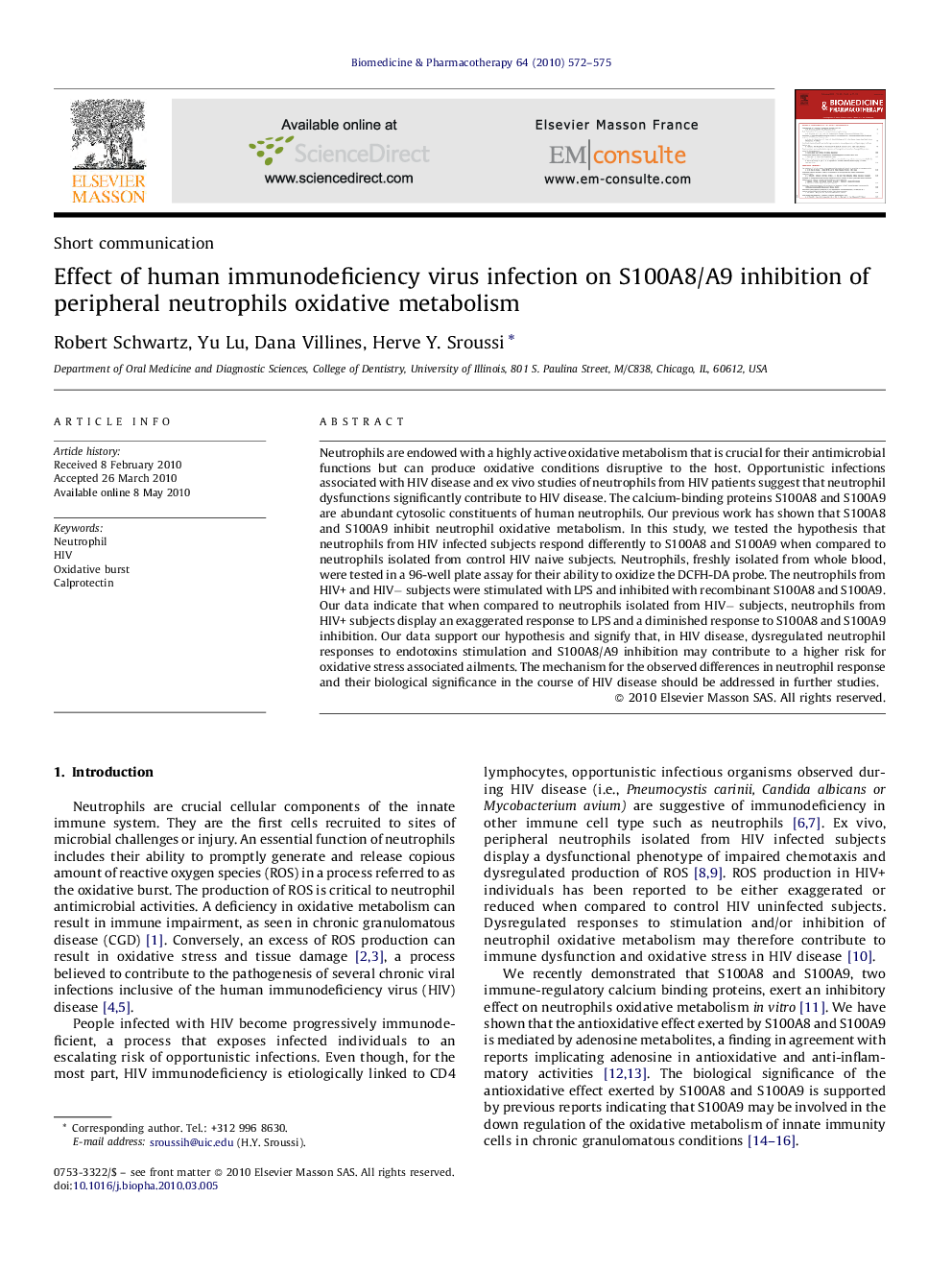| Article ID | Journal | Published Year | Pages | File Type |
|---|---|---|---|---|
| 2524868 | Biomedicine & Pharmacotherapy | 2010 | 4 Pages |
Neutrophils are endowed with a highly active oxidative metabolism that is crucial for their antimicrobial functions but can produce oxidative conditions disruptive to the host. Opportunistic infections associated with HIV disease and ex vivo studies of neutrophils from HIV patients suggest that neutrophil dysfunctions significantly contribute to HIV disease. The calcium-binding proteins S100A8 and S100A9 are abundant cytosolic constituents of human neutrophils. Our previous work has shown that S100A8 and S100A9 inhibit neutrophil oxidative metabolism. In this study, we tested the hypothesis that neutrophils from HIV infected subjects respond differently to S100A8 and S100A9 when compared to neutrophils isolated from control HIV naive subjects. Neutrophils, freshly isolated from whole blood, were tested in a 96-well plate assay for their ability to oxidize the DCFH-DA probe. The neutrophils from HIV+ and HIV− subjects were stimulated with LPS and inhibited with recombinant S100A8 and S100A9. Our data indicate that when compared to neutrophils isolated from HIV− subjects, neutrophils from HIV+ subjects display an exaggerated response to LPS and a diminished response to S100A8 and S100A9 inhibition. Our data support our hypothesis and signify that, in HIV disease, dysregulated neutrophil responses to endotoxins stimulation and S100A8/A9 inhibition may contribute to a higher risk for oxidative stress associated ailments. The mechanism for the observed differences in neutrophil response and their biological significance in the course of HIV disease should be addressed in further studies.
